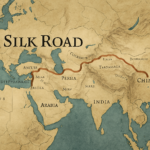
Communism is a political, economic, and social philosophy in which the ideal goal is for everyone to have an equal share of everything. Karl Marx, a German economist who compiled his ideas into a book titled The Communist Manifesto in 1848, is widely regarded as the founder of modern communism. Marx was not the first to develop theories about common ownership, but his ideology served as the foundation for communist politics in the twentieth century. Karl Marx’s communist ideas and theories could not be replicated in the real world. While Marxism was the most well-known type of communism, other types of communism exist as the original ideology became distorted.
The word ‘communism’ is derived from the French word ‘communisme’ which originally was used to describe social As opposed to political or economic states, situations
Hunter-gatherer societies were thought to be the earliest forms of communist societies. The Bible mentions a form of common ownership that some consider to be a form of primitive communism.
Karl Marx is widely regarded as the founder of modern communism, and his theories are also known as Marxism.
Karl Marx’s ideas about communism held that these practices would eliminate social classes, money, and the state.
In theory, communism would have put everyone on an equal footing, but in practice, it allowed governments to control citizens by distorting the fundamentals.
Governments that have used Marxism as a foundation for their politics have abused their power by mistreating citizens, controlling them, and even killing them when necessary to prevent those who disagreed with the government from rising up against them.
Following the 1917 Russian Revolution, Vladimir Lenin became the first communist leader to take power.
China became a communist country in 1949, while Cuba did so in 1959. Vietnam became a communist country in 1975.
Anarchist communism, anti-revisionism, Castroism, Council, Euro, Guevarism, Ho Chi Minh Thought, Juche, Left, Leninism, Luxemburgism, Marxism-Leninism, Christian Religious, Socialism with Chinese characteristics, Titoism, and Trotskyism are examples of communist ideologies used by various leaders, countries, and groups.
The Cold War began when the Western Allies (the United States and NATO allies) and the Eastern Bloc (the Soviet Union and its Warsaw Pact allies) began a power struggle that resulted in several crises, including the 1962 Cuban Missile Crisis. The Western Allies viewed the conflict primarily as a fight against communism.
Communist countries include Russia, China, North Korea, Cuba, Vietnam, and Laos.
Communism has failed in practice because governments have ignored the democratic aspect of the ideology, resulting in the division of social classes – which communism sought to eliminate in the first place.
In theory, communism is a type of society in which everyone is equal. In reality, it devolved into a form of dictatorship as the fundamental principles of communism and the abolition of social class were lost.
Vladimir Lenin, Fidel Castro, Raul Castro, Leon Trotsky, Pol Pot, Nikita Khrushchev, Kim Il-Sung, Imre Nagy, Jiang Zemin, Ho Chi-Minh, and Joseph Stalin are among the most famous communist leaders and activists in history.
Communism FAQs
Communism is a complex political and economic ideology with a long history. Here are some of the most commonly asked questions about communism:
What is communism?
Communism is a socio-economic system that aims to create a classless society where the means of production (factories, mines, farms) are owned and controlled by the public, typically through the state. There is no private property or social hierarchy, and goods are distributed based on need, not wealth.
Who is considered the father of communism?
Karl Marx, a German philosopher and economist, is generally considered the father of communism. Along with Friedrich Engels, he outlined the core principles of communism in their famous work, “The Communist Manifesto” published in 1848.
What are the main goals of communism?
- Elimination of social classes: Communism aims to create a society with no distinction between rich and poor. Everyone would have equal access to resources and opportunities.
- Public ownership of means of production: The government or a collective entity would own and manage factories, farms, and other productive resources.
- Distribution according to need: Goods and services would be distributed based on individual needs, not wealth or social status.
- Stateless society: Ultimately, communists believe in a future without a centralized state.
What are some of the criticisms of communism?
- Lack of individual incentive: Critics argue that communism discourages hard work and innovation because everyone receives the same regardless of effort.
- Loss of individual freedom: Communism often involves a strong central government that controls economic activity and potentially restricts individual freedoms.
- Historical failures: Many communist regimes have been criticized for authoritarian leadership, human rights abuses, and economic stagnation.
What are some examples of communist countries?
Several countries have implemented communist systems throughout history. Some notable examples include:
- The Soviet Union (1922-1991)
- The People’s Republic of China (present day)
- Cuba (present day)
- Vietnam (present day, although with a shift towards a market economy)
It’s important to note that these countries have implemented communism in different ways, and there are ongoing debates about the effectiveness and true nature of their systems.
Is communism still relevant today?
Communism as envisioned by Marx has not been fully realized in any country. However, communist ideas continue to influence socialist and leftist movements around the world. The debate about the merits and drawbacks of communism remains a relevant topic in political and economic discourse.
Are there different types of communism?
Yes, there are various strands of communist thought. Some of the most common include:
- Marxist-Leninism: This form of communism emphasizes the need for a vanguard party to lead the revolution and establish a socialist state before transitioning to a classless society.
- Anarchist communism: This approach rejects the idea of a state altogether, believing that a communist society can be achieved through decentralized worker cooperatives.
- Trotskyism: Developed by Leon Trotsky, a rival of Lenin, Trotskyism emphasizes the need for a global communist revolution.
What is the difference between communism and socialism?
Both communism and socialism share some common goals, such as social equality and economic justice. However, there are key differences:
- Ownership of means of production: In communism, the means of production are entirely publically owned. In socialism, there can be a mix of public and private ownership.
- Distribution of goods and services: Communism aims for distribution based on need, while socialism often distributes based on contribution.
- Role of government: Communist systems typically involve a strong centralized government controlling the economy. Socialist systems can vary, with some having a more decentralized approach.
Has there ever been a successful communist country?
This is a highly debated topic. Supporters of communism might point to reduced poverty and social safety nets in some communist countries. Critics argue about limitations on individual freedoms, lack of economic growth, and authoritarian leadership.
Could communism work in today’s world?
The rise of globalization and complex technological advancements make it difficult to say definitively. There are ongoing discussions about how communist ideals might be adapted to the modern world.
What are some of the utopian ideas of communism?
Communism envisions a future without social classes, money, or a state. People would work for the common good and receive according to their needs.
What are some dystopian aspects of communism?
Critics point to historical examples of communist regimes with limited individual freedoms, suppression of dissent, and economic stagnation.
Is communism inherently violent?
Communist revolutions throughout history have often involved violence. However, some argue that violence is not a necessary feature of communism itself.
Is communism compatible with religion?
Communism often emphasizes atheism or secularism. However, there have been attempts to reconcile communist ideals with religious beliefs.
I hope this additional information helps provide a more comprehensive understanding of communism. Remember, communism is a complex topic with a long history, and there’s no single answer to many of these questions.
Further resources:
If you’d like to learn more about communism, here are some resources:
- Britannica: https://www.britannica.com/question/What-is-communism
- Investopedia: https://www.investopedia.com/terms/c/communism.asp
- Museum of Communism FAQ by Bryan Caplan: https://economics.gmu.edu/prospective/prospective-graduate-students/prosp_faqs (This website offers a critical perspective on communism)









